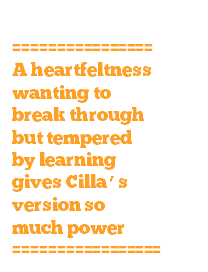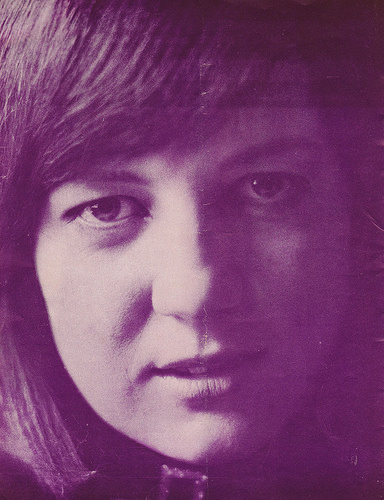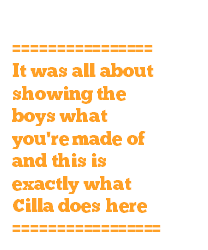Tx. 16.08.15. 9.00-10.00pm, BBC Four
Embed from Getty Images
A compilation of Cilla Black’s ‘pop star days’ as the announcer put it, spanning mainly 1964-76 and in broadly chronological broadcast order – in remembrance of the singer and television star who died on August 1st.
Here is a complete rundown of the show.
Anyone Who Had a Heart
“From Liverpool, the young lady who captivated everyone’s heart, in fact, anyone who had a heart, that is…’ the words of David Jacobs’ introduction to Cilla’s appearance at the 1964 Royal Variety Performance.
As if to emphasise her new found pop star status she arrives in a sports-car on the Palladium’s famous revolving stage before launching into possibly her most famous song. Through a grainy picture we see Cilla, a spotlighted, solitary figure for the song’s duration and only 21 years old, stealing a glance at the royal box, perhaps in disbelief that she is there at all. A caption informs us that Elvis had a copy of the song on his Graceland jukebox.
[Film extract]: short film extract with Cilla, interviewed in her dressing room, acknowledging Brian Epstein’s vital role in her success. Can anyone place the interviewer?
If I Fell
Embed from Getty Images
Cilla struggles to reach the end of Lennon-McCartney’s song without collapsing into fits of giggles as Dudley Moore (at harpsichord?) adds brilliantly absurd falsetto counterpoint.
This 1966 clip from Not Only…But Also has surfaced at least several times previously but is so utterly charming (despite being no doubt ruthlessly rehearsed) that it’s a delight to see it again.
Cilla manages the comedy/music divide with girlish ease and sports a great Mary Quant haircut.
Alfie
“A song about one of me favourite boyfriends…” quips a sequinned Cilla in this clip from The Ken Dodd Show before a live audience in 1966.
There is a curiously different sheen to this b/w film from the previous clips.
Embed from Getty Images
You’ve Lost That Lovin’ Feelin’
A hit for Cilla in 1966 and the first of numerous clips taken from her Saturday night BBC series Cilla which incredibly ran January 1968-April 1976 (I wonder how much survives in the archives?)
For me, this is one of the most revealing clips here. Although her version of the Righteous Brothers’ song was undoubtedly opportunistic and widely regarded as inferior to theirs, what is striking here is the resolute passion with which she delivers the song.
Unlike her Top of the Pops appearances, she would have been singing live to a studio audience in the BBC Theatre. It’s interesting that she rarely looks directly into the camera yet is able to impart the song’s emotional charge directly to the viewer.
Backing vocals are low in the mix apart from some siren-like ones in the second verse and drums are quite high but not obtrusively so. Overall it’s a great rendition.
Watch an alternative version of You’ve Lost That Lovin’ Feelin’
[Vox pop extract]: Cilla meets some ‘rather super’ people in a supermarket. Her variety series was quick to catch onto her easy rapport with the public and vox pop sequences like this one became a staple part of her shows five years before That’s Life claimed them as their own.
Where is Tomorrow
A rarely seen Top of the Pops clip from 1968 of this underrated song filmed in characteristic fashion, slightly from below so as to take in plenty of lights and ceiling. Someone should have told her about the one-sided upturned collar.
Step Inside Love
Embed from Getty Images
This suave Paul McCartney composition became the theme for Cilla’s TV series.
In a 1968 clip she accedes to viewers’ requests to perform the entire song including ‘the bit in the middle’ as a handy bit of promotion for her single.
Love’s Just a Broken Heart
A grainy, high contrast picture for this arresting song. From Cilla, 1968.
Watch Love’s Just a Broken Heart
Friendship
It’s 1969 and Cilla meets children from the Corona Stage School who naturally declare Dusty Springfield to be their favourite singer. This probably led into Dusty Springfield performing solo but here segues into Cilla dueting with Dusty on the comedy number ‘Friendship’, in a fashion typical of guest spots on her TV series.
In long coats and hats ‘Springfield and Black’ alludes to Flanagan and Allen so possibly ‘Friendship’ was first performed by the popular 1940’s duo.
Embed from Getty Images
Some of the formats in Cilla deliberately hark back to the eras of concert hall and music hall so as to draw in older viewers whose memories would have stretched back to the tunes of both World Wars. The comedy aspect would also have appealed to children whilst Cilla’s pop persona would draw in young people.
Cilla showed herself to be an all round safe pair of hands with appeal across generations.
Surround Yourself With Sorrow
After the last clip, suddenly Cilla seems young and with-it again, performing this 1969 hit in a modestly psychedelic Top of the Pops studio. As always the shots of the dancers are as fascinating as the performance.
The single release of Surround Yourself With Sorrow has a fade-out but Cilla punctuates this shortened version of the song with a sudden closing ‘ooh!’
Watch Surround Yourself With Sorrow
Liverpool Lullaby
Embed from Getty Images
Studio and Cilla’s dress go op-art for this 1969 performance of Cilla’s signature song taken from her TV series.
Long before Cilla replaced the references to a father belting his children with a telling off (on 2013’s ITV tribute show The One and Only Cilla Black) she inexplicably substitutes ‘blighter’ for ‘beggar’ as in ‘the blighter drinks it all away’. Probably faint hearts at the BBC.
[Film extract]: Colour footage of Cilla’s 1969 wedding to Bobby Willis accompanied by Everything I Own, a track from her 1974 album In My Life, possibly the only occasion this programme makes a glaring chronological contradiction in order to support the narrative.
Anyone Who Had a Heart
Sporting a new hairstyle (see 1970’s Sweet Inspiration album cover), Cilla contributes to Pop Goes the 60s from the closing day of that decade.
With bright yellow maxi dress against moving green and purple backgrounds the show is eager to promote the benefits of colour television which had reached BBC-1 only the previous month.
At first I was unsure as to whether Cilla is miming but the definite ending given to this rendition (as against the fade to the record release) firmly suggests that she is singing live.
The show featured a range of artists who had come to prominence in the 60s. Cilla’s contribution was recorded separately from the main role call, presumably due to her unavailability.
‘Morecambe and Wise Show’ sketch: this was a sketch on the theme of a recording contract shown on 3rd October 1971.
No song from Cilla is included from the show, though in all probability she contributed one or that role might have gone to fellow guest Ronnie Carroll.
Watch Cilla on Morecame and Wise
Norwegian Wood
From TV special Cilla in Scandinavia (transmitted on BBC1 on 27/1/71 and filmed at various locations in Norway, Sweden and Finland earlier that year) Cilla performs Norwegian Wood in a TV studio (presumably the BBC Theatre despite the ‘Scandinavian connection) with excellent harmony backing from Marvin, Welch and Farrar.
Her covers of Beatles songs seem like easy, reliable options only if you forget her background and how her early career was bound up with that of The Beatles.
The Snowman Song
Also from Cilla in Scandinavia, Cilla sings The Snowman Song with Ringo Starr and posh puppet fox Basil Brush at the Geilo winter resort in Sweden as said snowman slides away behind them.
Elsewhere on this special, Ringo performed It Don’t Come Easy on a mountain top, marking his third and final appearance on Cilla (he appeared in the first ever edition).
Then we move from 1971 to 1973 with surprisingly no sign of Something Tells Me (Something’s Gonna Happen Tonight) which replaced Step Inside Love as theme to Cilla’s TV series and gave her a final sizeable hit in 1971.
Embed from Getty Images
From about this point on, the clips maintain a curiosity value but seem less vital as Cilla’s chart career essentially winds down. Although I feel a certain fondness for some of them, a tackiness creeps in and the truth is they feel nonessential compared to her 60s songbook.
Life’s a Gas
A January 1973 clip seen numerous times illustrating the sometimes bizarre counter cultural collisions on 70s variety shows.
Cilla duets with Marc Bolan in a combination which might have appalled teenagers at the time but has come to seem oddly endearing. And it’s all sealed with a kiss.
Imagine
Cilla never committed this song to vinyl (at least not until 2003) but its inclusion here from her TV series shows how Imagine gained mass MOR respectability early on. In fact the simple piano chord structure at the song’s heart would have rendered it as an obvious candidate for Cilla’s sometimes gospel flavoured 1973 album Day by Day.
Another clip has surfaced from a similar vintage with backing dancers in a monochrome set, but here, in the better of the two versions, Cilla performs in a misty-edged blue/green studio.
It Only Happens When I Dance With You
Cilla, Bruce Forsyth and a troublesome feather boa feature in this 1973 song and dance routine from her TV series.
I Don’t Know How to Love Him
Another 1973 clip from Cilla and a track from 1973 album Day By Day.
Watch I Don’t Know How to Love Him
Embed from Getty ImagesEquality
A comedy burlesque song and dance routine with female dancers on feminist themes. This leads into the following item, very probably from the same 1974 edition of Cilla.
[Vox pop]: with Cilla asking passers-by for their views on ‘women’s lib’. Some very of-the-time comments follow, one man declaring “They haven’t got the brain…” and a feisty woman “It’s about time we had a woman for prime minister then we’d put the men in their place”.
The way in which ordinary people respond completely naturally to Cilla as one of their own, almost as a friend (“How’ve you been keeping?”) is testimony to her enduring common touch.
Let It Be Me
A duet with Phil Everly from a 1974 Cilla in which his voice sounds husky compared to Cilla’s.
And I Love Her
Cilla duets with a characteristically white suited David Essex, Cilla 1974.
[Vox pop]: a factory worker introduces Chiquita the diminutive guard dog (I would guess from 1976) leading into…
Leaving on a Jet Plane
With the wind in her CSO hair, eight male cabin crew do windmills on airplane wings as the BBC bring technology to bear on the long-running format of Cilla. The result has considerable camp appeal. ‘I’m leaving…’ Cilla sings as her TV series comes to an end after eight years in 1976.
Given the array of guest stars who appeared on Cilla, I’m a little surprised at the absence of friend Frankie Howerd; the pair surely featured together though quite possibly footage no longer exists.
Embed from Getty Images
Step Inside Love
A slightly slow version at the start, this comes from Cilla’s 1983 appearance on Wogan which reputedly launched the second phase of her career as a major television personality. An extract from both the song and the interview are included here.
The interview extract, in which she claims to have once sung ‘steak and chips’ to the lyrics of Alfie, again illustrates that her extraordinary lack of pretentiousness is undiminished after seven years concentrated on bringing up her family (although she did make at least two appearances on Top of the Pops in 1978 and feature in a memorable Cadbury’s Dairy Milk commercial (these not included in the show though).
Watch Cilla on Wogan
Cadbury’s commercial 1978
I Want You to Stay…
Embed from Getty Images
We end with a b/w signing off from an early Cilla show – “The only thing left to say really is Ta-ra then” and an ethereal , sylph-like Cilla does an about turn and walks away from the camera, one last time.
Take Three Songs by Cilla Black
Cilla: lightspots review of ITV’s biopic with Sheridan Smith

 and voice are that much sharper as if to highlight the very starkness of the situation.
and voice are that much sharper as if to highlight the very starkness of the situation.
 part-time performer to 60s hitmaker and star. You can easily picture her belting this out on the tiny stage at The Cavern but it also became her first hit, a UK No 35. Unlike most of Cilla’s future singles, its beat origins can be clearly heard and, if anything, are actually emphasised by George Martin’s brassy blasts.
part-time performer to 60s hitmaker and star. You can easily picture her belting this out on the tiny stage at The Cavern but it also became her first hit, a UK No 35. Unlike most of Cilla’s future singles, its beat origins can be clearly heard and, if anything, are actually emphasised by George Martin’s brassy blasts.